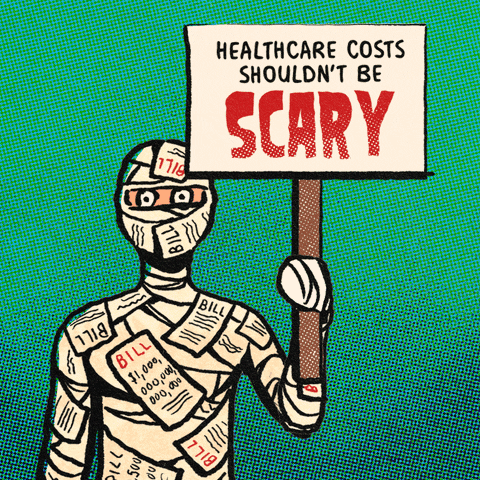Revolutionizing Healthcare with AI: Enhancing Patient Care and Efficiency

The Future of Healthcare: AI's Impact Described
Imagine a future where healthcare seamlessly blends cutting-edge technology with personalized care, revolutionizing the patient experience. That future is now, as artificial intelligence stands in a good position to reshape the healthcare landscape. With AI, healthcare organizations can streamline processes, reduce administrative burdens, and enhance patient outcomes. The potential for AI to revolutionize patient care is vast, and it is crucial that healthcare leaders understand the current state of AI in healthcare and its applications to effectively adopt and integrate these technologies into their operations.
The integration of artificial intelligence in healthcare has the potential to revolutionize the industry by enhancing patient care and operational efficiency. The COVID-19 pandemic has accelerated the adoption of virtual healthcare services globally, and AI is going to play a crucial role in optimizing these services. With the strategic integration of AI, healthcare organizations can elevate the standard of virtual care, ultimately driving improved patient outcomes and operational efficiencies. AI-enabled solutions can streamline patient examinations, facilitate precise disease detection, and support data analysis for informed clinical decision-making. As healthcare leaders continue to drive efforts to optimize virtual healthcare solutions, the synergy of virtual health and AI presents an interesting path toward simplifying healthcare and improving overall care delivery.
Healthcare with AI: Empowering Patients, Transforming Outcomes
As AI technologies continue to evolve, they are transforming the way healthcare providers deliver care, from diagnosis and treatment to patient engagement and operational efficiency. Since the COVID-19 pandemic, the surge in virtual healthcare services has set the stage for AI to redefine healthcare.
The escalating demand for virtual healthcare services signals a shift towards a digital healthcare landscape. However, post-pandemic adoption rates of digital healthcare solutions have fallen short, underscoring the need for healthcare organizations to fine-tune their virtual healthcare strategies. As a crucial reference, Info-Tech Research Group's Virtual Health Playbook offers invaluable insights and tools to enhance virtual health practices, with a focus on boosting revenue and elevating patient satisfaction.
Info-Tech Research Group, among others, offers a strategic framework for the development of effective virtual healthcare services:
In the area of virtual healthcare, designing a workflow is crucial. This process involves creating a structured framework in collaboration with clinical and support teams to ensure the effective delivery of virtual care encounters. By establishing a well-defined workflow, healthcare organizations can streamline their virtual care services, promoting seamless and efficient care delivery.
Furthermore, Info-Tech emphasizes the significance of establishing a dedicated team for virtual care delivery. Starting with a small and adaptable team focused on virtual care can significantly enhance accessibility and convenience for patients. This approach aims to elevate the overall patient experience, emphasizing the importance of personalized and patient-centric care in virtual healthcare settings.
Selecting the right technology is another key aspect highlighted. Healthcare organizations are encouraged to choose technology that aligns with their virtual care objectives. As virtual care programs evolve, a comprehensive evaluation of the technology is essential to support continued growth and the incorporation of new workflows and services, ensuring that the technology remains aligned with the organization's evolving needs.
Lastly, tracking performance is emphasized as a critical component in optimizing virtual care services. Monitoring and evaluating performance metrics, from patient interactions to the technology utilized, play a vital role in ensuring the effectiveness of virtual care delivery. By tracking performance, healthcare organizations can make data-driven decisions to enhance the quality and efficiency of their virtual healthcare
Crafting tailored virtual care practices becomes paramount, recognizing that a one-size-fits-all approach may not cater effectively to the diverse needs of patients and clinicians. To successfully implement virtual care services, healthcare organizations must prioritize digital interoperability, robust data governance, and stringent privacy measures. The transition to virtual care not only promises operational efficiencies but also provides improved patient experiences and clinical outcomes.

What About the Ethics of AI in Healthcare? WHO's Guidance on AI Ethics and Governance
Imagine a world where AI-powered tools streamline patient examinations, detect diseases with pinpoint accuracy, and support informed clinical decision-making. This future is closer than you think, as the integration of AI into virtual reality offers new possibilities but, at the same time, we cannot forget about the ethical matters related to these possibilities. How can healthcare organizations effectively balance the potential benefits of AI technologies with the ethical implications they entail? What measures can be implemented to ensure the responsible development and deployment of AI in healthcare settings? There is a crucial guidance: the World Health Organization's (WHO) latest guidance on the ethics and governance of large multi-modal models (LMMs) in healthcare.
WHO’s guidance is a crucial step forward in ensuring the responsible development and deployment of artificial intelligence technologies that can improve healthcare outcomes while minimizing risks.
LMMs, a type of generative AI, have the potential to revolutionize healthcare by accepting various data inputs and generating diverse outputs. They can be used in diagnosis and clinical care, patient-guided use, clerical and administrative tasks, medical and nursing education, and scientific research and drug development. However, these technologies also pose risks, including producing false or biased information, perpetuating health inequities, and compromising patient data security.
The WHO's guidance outlines over 40 recommendations for governments, technology companies, and healthcare providers to ensure the appropriate use of LMMs. These recommendations emphasize the need for transparency, accountability, and stakeholder engagement in the development and deployment of LMMs. Governments are urged to invest in public infrastructure, set standards for LMM development and deployment, and ensure that LMMs meet ethical obligations and human rights standards. Developers of LMMs should engage with stakeholders, design LMMs for well-defined tasks, and predict and understand potential secondary outcomes.
The WHO's guidance is a critical step in promoting the responsible use of AI in healthcare. As AI technologies continue to evolve, it is essential that we prioritize ethical considerations and governance to ensure that these technologies benefit patients and healthcare systems worldwide. By following the WHO's guidance, we can embrace the potential of AI to improve healthcare outcomes, reduce health inequities, and protect patient rights.
As AI technology advances at a rapid pace, the potential for its application in clinical practice to revolutionize healthcare services becomes increasingly evident. Documenting and disseminating insights on AI's pivotal role in clinical practice is crucial to equip healthcare providers with the knowledge and tools essential for effective implementation in patient care.
The Power of AI in Healthcare: A Journey Towards Ethical Innovation
In the dynamic realm of healthcare, the integration of artificial intelligence stands as a resource of transformative potential, reshaping patient care and operational efficiency. The global surge of AI in healthcare marks a shift towards precision diagnosis, personalized treatment plans, and enriched patient experiences. With the ability to swiftly analyze vast datasets, AI technologies hold the key to enhancing clinical decision-making and driving superior health outcomes for individuals worldwide.
Yet, amidst the promising advancements, challenges in AI healthcare adoption cast some problems. Concerns surrounding data privacy, algorithmic biases, and regulatory ambiguities present substantial barriers to the integration of AI in healthcare environments. Safeguarding patient privacy, addressing bias in algorithms, and navigating the intricate regulatory landscape are imperative steps towards ensuring the ethical utilization of AI in healthcare.
Collaboration emerges as the cornerstone in laying down ethical frameworks for AI in healthcare. By uniting stakeholders from diverse backgrounds – healthcare professionals, data scientists, policymakers, and ethicists – a shared understanding of the ethical implications of AI technologies can be cultivated. Through collaborative efforts, guidelines and standards can be crafted to foster responsible and equitable AI utilization in healthcare, placing patient welfare and ethical considerations at the forefront.
In essence, the potential of AI to revolutionize healthcare is boundless. By harnessing the capabilities of AI technologies, healthcare systems can elevate diagnostic precision, refine treatment strategies, and elevate the overall patient care journey. However, to fully unlock the benefits of AI in healthcare, a steadfast commitment to ethical considerations and conscientious AI development and deployment is paramount. Establishing robust ethical frameworks ensures that AI is wielded in a manner that upholds patient trust, preserves privacy, mitigates biases, and ultimately drives enhanced patient outcomes and operational efficiencies in healthcare delivery.
Sebastian's Story: How AI Transformed His Virtual Care Experience
Sebastian, a 45-year-old software engineer, had been managing his type 2 diabetes for years. When the COVID-19 pandemic hit, he became increasingly concerned about his health and the need to minimize in-person doctor visits. That's when he discovered his healthcare provider's new virtual care program powered by artificial intelligence.
"At first, I was a bit skeptical about relying on AI for my medical care," Sebastian admitted. "But the convenience and ease of use won me over. The AI-enabled app allowed me to easily track my blood sugar levels, medication adherence, and even conduct virtual check-ins with my doctor."
The AI system used advanced algorithms to analyze Sebastian's data and provide personalized insights and recommendations. It flagged potential issues early on and suggested adjustments to his treatment plan. "I was amazed at how accurately the AI could detect patterns and predict potential problems before they even arose," Sebastian said.
Over time, Sebastian's health metrics improved significantly. He felt more in control of his condition and empowered to make informed decisions about his care. "The AI-powered virtual care program has been a game-changer for me," he shared. "It's made managing my diabetes so much easier and has given me peace of mind knowing that I'm receiving high-quality care, even from the comfort of my own home."
Stories like Sebastian's demonstrate the transformative potential of AI in virtual healthcare. By strategically integrating AI, healthcare organizations can deliver more personalized, efficient, and effective care, ultimately improving patient outcomes and experiences.

Your Top Questions Answered
What are the benefits of AI in healthcare?
AI in healthcare offers numerous benefits, including reducing human error, assisting medical professionals, providing 24/7 patient services, improving communication between patients and providers, enhancing diagnostic accuracy, streamlining processes, and potentially reducing treatment costs.
What are the ethical considerations and challenges of using AI in healthcare?
Ethical considerations and challenges of AI in healthcare include the potential for bias, lack of regulations, concerns about accuracy, and issues of accountability. AI models can inherit bias from training data, and errors in healthcare can have significant consequences, making accountability crucial. Additionally, the lack of official regulations poses challenges in governing AI technology in healthcare.
How can AI address challenges across the healthcare workflow?
AI can address various challenges in the healthcare workflow by optimizing patient scheduling, streamlining check-in processes, providing decision support for clinical assessments, facilitating remote consultations for medical examinations and diagnoses, assisting in treatment planning, administering treatments, monitoring patients, and improving billing and coding processes. AI technologies like decision support systems, telemedicine platforms, and robotic systems can enhance efficiency and patient care across different stages of healthcare operations.
What are some examples of AI applications in healthcare?
AI is used in healthcare for medical diagnosis, drug discovery, patient experience enhancement, healthcare data management, and robotic surgery. AI can predict and diagnose diseases faster than humans, design drugs, improve patient communication, streamline administrative processes, and assist in surgeries. Examples include AI-powered diagnostic tools, drug design algorithms, patient communication chatbots, data analytics systems, and robotic surgical assistants.
Key Takeaways
- AI is revolutionizing healthcare by enhancing patient care and operational efficiency.
- The COVID-19 pandemic accelerated the adoption of virtual healthcare services globally.
- AI plays a crucial role in optimizing virtual healthcare services.
- Strategic AI integration elevates the standard of virtual care, improving patient outcomes.
- Post-pandemic digital healthcare adoption rates are lower than expected, indicating a need for optimization.
- Info-Tech Research Group's Virtual Health Playbook provides valuable insights for enhancing virtual health practices.
- A tailored approach to virtual care is essential for meeting diverse patient and clinician needs.
- Healthcare organizations must prioritize digital interoperability, data governance, and privacy measures for successful virtual care implementation.
- AI-enabled solutions streamline patient examinations, disease detection, and clinical decision-making.
- AI's value in the global healthcare market is projected to grow significantly by 2030.
- AI expedites drug discovery and medical research, reducing experimentation time.
- Machine learning algorithms enhance personalized treatment plans and diagnostic accuracy.
- Real-time AI assessment improves clinical outcomes and reduces healthcare costs.
- Predictive analysis by AI helps prevent complications and anticipate health crises.
- AI integration improves patient experiences with streamlined scheduling and remote monitoring.

Thank you for reading this post!
If you found it helpful or informative, please consider sharing a 7 day free trial with your friends, family, or colleagues who might benefit from it.
Your support helps me reach more people and spread awareness on important topics like this. Together, we can make a difference!
References
https://www.nature.com/articles/s41591-023-02783-w
https://www.ibm.com/think/insights/ai-healthcare-benefits
https://www.leewayhertz.com/ai-use-cases-in-healthcare/
https://online.stanford.edu/how-bring-artificial-intelligence-healthcare-safely-and-ethically
https://hbr.org/podcast/2024/01/the-challenges-and-benefits-of-generative-ai-in-health-care
https://www.ncbi.nlm.nih.gov/pmc/articles/PMC7606883/
https://jhmhp.amegroups.org/article/view/6812/html
https://www.researchgate.net/publication/361554237_AI_in_Healthcare_Applications_and_Challenges
https://emerj.com/ai-in-industry/healthcare/
https://pubmed.ncbi.nlm.nih.gov/37740191/
https://bmcmededuc.biomedcentral.com/articles/10.1186/s12909-023-04698-z
This article was written by Ariadna Paniagua, an experienced writer and editor for several institutions, papers, and websites.




